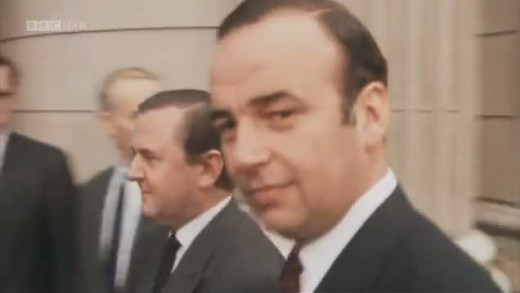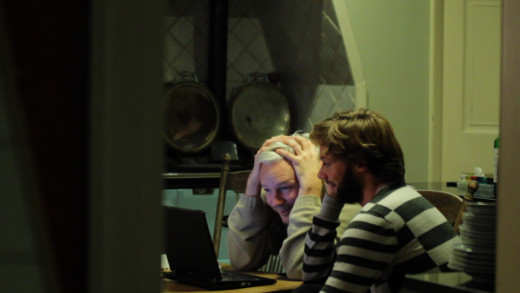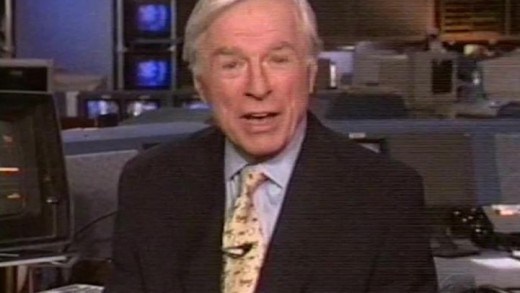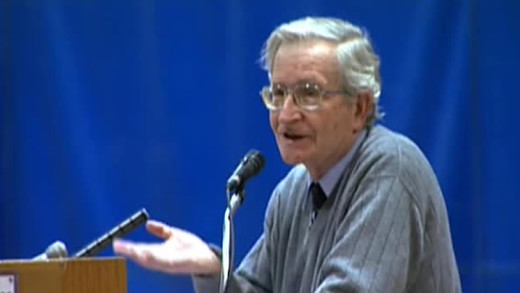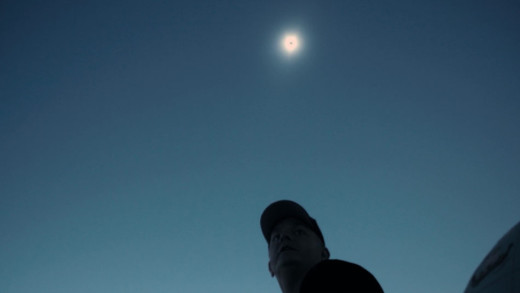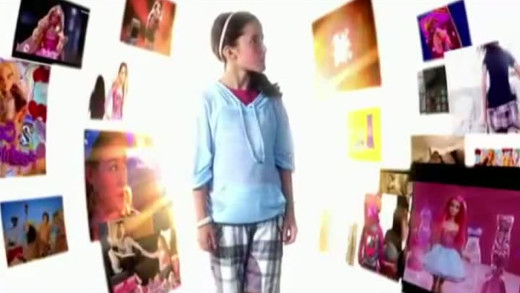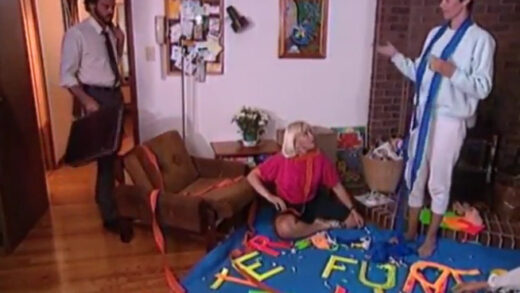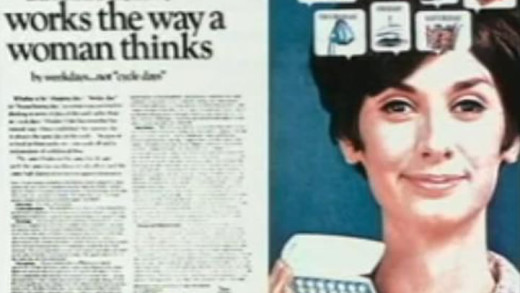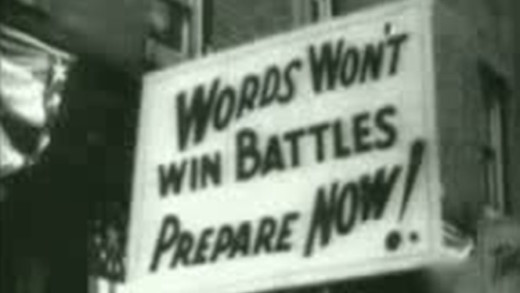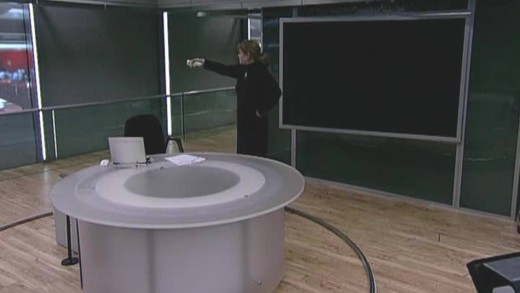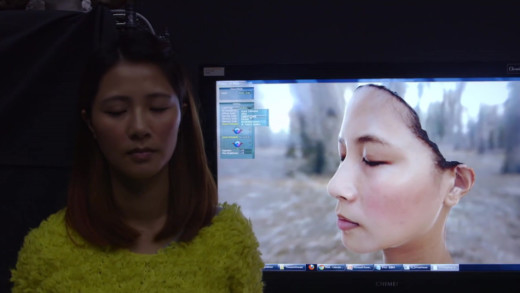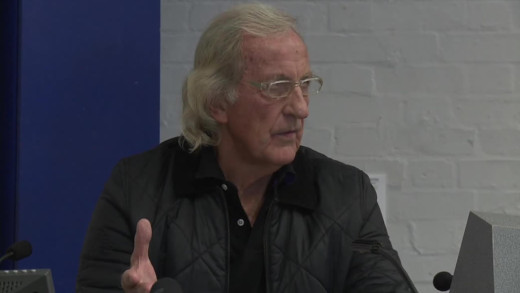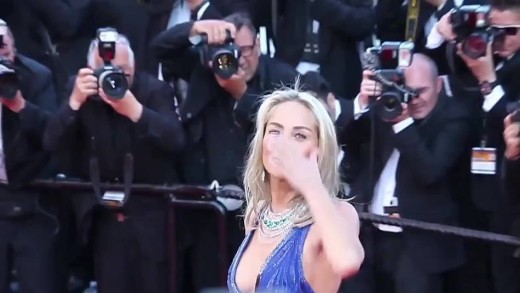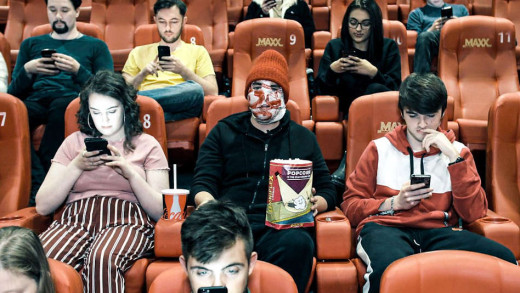This short film uses the history and figure of the Murdoch media empire as a vast invasive machine, to draw parallels to new media machines such as Google that are not only more invasive, but more pervasive than anything the Murdoch media empire has managed. Why are we not more concerned about this?
In Mediastan, an undercover team of journalists drive across central Asia interviewing editors of local media outlets to publish secret US diplomatic cables that were provided to WikiLeaks in 2010. Success is varied. And so, after regrouping with Julian Assange in England, questioning the editor of the Guardian, and obtaining candid footage of the New York Times editor and its publisher Arthur Sulzberger, Mediastan closes by leaving the viewer with an informative first-hand overview of the machinations of mainstream media. By venturing into the minds—and actions—of the people and institutions who shape the news, Mediastan shows the system for what it's worth, and reveals its true motivations...
Produced twenty years ago, and even several years before the rise of Fox News, The Myth of the Liberal Media is possibly relevant now more than ever. The film dissects how news content gets shaped within a narrow and ultimately conservative institutional framework that marginalises other perspectives, filtering news events through a lens that serves power. Featuring scholarly analysis from Justin Lewis, Edward Herman and Noam Chomsky, The Myth of the Liberal Media asks: If you want to understand the way a system works, you look at its institutional structure. How it is organised, how it is controlled, how it is funded. The documentary examines the relationship advertising has in funding the media, and how this sets agendas, as well as exploring certain narratives that are propagated through a number of case studies that reveal how these mechanisms ultimately serve power instead of public interest.
Jesus Camp follows several young children as they prepare to attend an event called 'Kids on Fire,' a Christian summer camp run by Becky Fischer. Through interviews with Fisher, the children, and others, Jesus Camp illustrates the unswerving belief of the faithful—a housewife and home-schooling mother tells her son that creationism has all the answers; footage from inside the camp shows young children weeping and wailing as they promise to stop their sinning; child after child is driven to tears. These scenes are contrasted with clips from another Christian radio host who is appalled by such happenings. Are these children being brainwashed?
Rebel Without A Pause follows renowned linguist and activist, Noam Chomsky through discussions and talks on various world events such as the invasion of Iraq, the September 11th attacks and the War on Terror. Chomsky also weaves in accounts of media manipulation, social control, and discusses the workings of the politics of fear. The film combines footage from large forums to small interactive discussions on these topics, as well as reflections from others...
Merchants of Doubt looks at the well established Public Relations tactic of saturating the media with shills who present themselves as independent scientific authorities on issues in order to cast doubt in the public mind. The film looks at how this tactic, that was originally developed by the tobacco industry to obfuscate the health risks of smoking, has since come to cloud other issues such as the pervasiveness of toxic chemicals, flame retardants, asbestos, certain pharmaceutical drugs and now, climate change. Using the icon of a magician, Merchants of Doubt explores the analogy between these tactics and the methods used by magicians to distract their audiences from observing how illusions are performed. For example, with the tobacco industry, the shills successfully delayed government regulation until long after the health risks from smoking was unequivocally proven. Likewise with manufacturers of flame retardants, who worked to protect their sales after the toxic effects and pervasiveness of the chemicals were discovered. This is all made analogous to the ongoing use of these very same tactics to stall governmental action in regards to global climate change today.
Behind the Curve documents the resurgence of believers of a flat Earth, as made popular through YouTube videos. The film is a personal exploration of how people became exposed to flat Earth theories (the YouTube algorithm), and how those ideas were reinforced in an echo chamber of social media, rejecting empirical evidence, at a time of increasing countercultural distrust in authority figures and the epistemology of science. The narrative at the core of the film reveals how the screen bubble can envelop a person's informational exposure, and change their relationships and perceptions in the real world, where confirmation bias is reinforced, making alternative views threatening, and individualism sacrosanct. Information that is contrary to a deeply held belief then becomes increasingly impossible to accept, especially if it has changed your life and circle of friends. So with empathy and a playful warmth, Behind the Curve becomes a warning light to the importance of honest discourse and critical analysis, falsifiability and dogma, but above all, to empathy and understanding of a person's desire to create meaning and acceptance in a lonely, fragmented culture.
Two film students set out to explore the psychological and manipulative powers of consumerism by creating an extensive and pervasive advertising campaign for a fake hypermarket. The ads appear on radio, television, billboards; there is a promotional song, an internet site, ads in newspapers, magazines, and flyers with photos of fake Czech Dream products are distributed. Will people believe it and show up for the grand opening?
From tiny tots strutting bikini-clad bodies in beauty pageants to companies marketing itty-bitty thongs and padded bras directly to 9-year olds; images of ever-younger sexualised girls pervasively saturate the media landscape. Add to that: ever-younger boys with 24-7 access to hard-core internet porn and the situation permeates every aspect of their lives--from skate parks to the school bus. By the time they’re eighteen, 80 percent of boys are watching porn online. Then add to that smart phones and social networking websites, and kids can not only consume X-rated images, but can now also produce them. Sexting has become a Grade 7 right of passage. Sext Up Kids exposes how growing up in a hyper-sexualized culture hurts everyone. Teens and pre-teens show and tell what they are doing and why they are doing it. Psychologists and social researchers reveal startling new evidence, tracking how the pressure to be sexy is changing teen and sexual behaviour in alarming ways. Parents and educators struggle to help kids navigate puberty in a world where the line between pop culture and porn culture is increasingly blurred. For every parent who thinks, “that’s not my son or daughter,” Sext Up Kids is your wake up call.
The combination of detailed descriptions by abused women and great dramatisations helps both male and female viewers to understand the realities of spousal abuse, what motivates this kind of activity, and reveals the myths that surround it. Low self-esteem, rather than straight anger, is the central causal issue and the ability to quit habitual spousal abuse is as problematic as recovery from any other addiction.
The Secret History of the Credit Card uncovers the deceptive techniques and tactics used by banks and financial corporations to get citizens to take on ever more debt, while earning record profits. Penalty fees, defaulting, changing contracts, increasing rates retrospectively---these are some of the ways credit card companies gouge their users, and increase influence. The film shows how such profitability of credit cards began in the 1980s, when the banking industry successfully eliminated the limit on the interest rate a lender can charge a borrower. This deregulation, coupled with real-time tracking of personal financial information, facilitated the widening availability of credit cards. Despite a growing number of consumer complaints, the ability of state and local governments to investigate the credit card companies has virtually been eliminated, due to companies incessant lobbying and litigation that has created a jurisdictional "turf battle."
Author and activist Jean Kilbourne analyses the depiction of women in advertising and media by decoding a large array of print and television ads. What is revealed is a torrent of stereotypes; sexist and misogynistic images and messages; laying bare a world of frighteningly thin women in positions of subservience; collectively, the restrictive code of femininity that works to undermine girls and women in the real world. By examining these messages, Killing Us Softly asks us to take advertising seriously, and to think critically about its relationship to sexism, eating disorders, violence against women, popular culture, and contemporary politics.
While advertising is clearly a visible component of the corporate system, perhaps even more important and pervasive is the often-invisible partner—the public relations industry. Toxic Sludge Is Good For You illuminates this hidden sphere of the corporatocracy, examining the way in which the management of public discourse has become central to how society has been usurped and is controlled by political and economic elites. The film tracks the development of the PR industry from its early efforts to win popular support for World War I, to the role of crisis management in controlling damage to the corporate image, while analysing the tools PR people use to manipulate public perceptions.
Oh Dearism II
A look back on the news events from 2014 reveals a confusing, muddled mess. Things are increasingly chaotic, along with the reporting of the events in the culture of 24-7 rolling news, sound-byte feeds and the Internet. The result, as we see, is not a coherent public understanding of these complex events, but more a profound mass-confusion, with discourse destroyed, which in-turn broods disengagement from the world and further atomises an already divided-and-conquered public. It is this response that is a powerful form of social control, and is by design...
We live in an absolutely saturated media environment of images that span 'real' and fake—whether it's newspaper and tabloid photos, journalism itself, art and culture, or the human body. Images claim to be hardly distinguishable from the originals, while the virtual world is increasingly becoming 'seamless' in the real world. Kids today see a Clown Fish but instead impose their imagery of Finding Nemo. People interact with machines more than they do living beings. The narratives imposed by this technological and media culture are fast seeking to entirely replace the real world with a simulation of it. So what does that mean for the truth? The Industry of Fake explores the shifting boundaries and inequality in journalism and in art, as well as providing a basis to question this culture's fascination with simulacra—a process of mimicry mediated by images that represents the real thing, but is not the real thing. What does it mean if we value our projections or stories about the thing as opposed to the thing in-and-of itself? What does this mean in the real world if we come to value our simulations or representations as more authentic things as opposed to copies or toxic mimics?
Most people who know that the mainstream media manipulates stories, manufactures illusions, and exploits fears can realise that the reason is more than just bias or sloppy reporting. Behind The Big News shows the ideological agenda that originates outside the media that defines today's headlines, using examines of some of the biggest news stories in recent decades to illustrate how this agenda is rigorously promoted and protected.
John Pilger talks about the various mainstream media commonalities of today--censorship by omission, information management, Public Relations and the 'massaging of information', as well as the clever distractions such as the election of Obama as a war monger in the land of slavery, alongside figures such as Hillary Clinton and Julia Gillard as a false win for so-called 'feminist ideals.' Amongst the ongoing wars played by the United States, Britain and Australia, Media And War -- Challenging The Consensus is a renewed call to unravel complex propaganda and cut through distractions.
By examining the people and practices of the media and entertainment industries, The Fourth Estate illuminates not only specific incidences of corruption by press groups, but how the wider model of mainstream journalism itself as a for-profit entity has a huge amount to answer for in terms of democracy and the state of politics throughout the world. Filmed over two years throughout the UK on no budget, the filmmakers profile journalists, organisers and critics of industrial media practices, stemming from the Leveson Inquiry in 2011 which was set up to examine the culture, practices and ethics of the British press following the News International phone hacking scandals of the Murdoch media empire. While the phone hacking scandal illuminated the depth and breadth of the culture of British journalism, the media's focus at the time quickly diverted from a brief period of self-examination, back to business as usual. This film instead continues the analysis by looking at the larger implications of a for-profit media model and its connections to ideology, entertainment, and hence the resulting political framework that's in crisis.
As one half of the satirical duo, The Rubber Bandits, Blindboy is renown for wearing a plastic bag on his head while dishing out sharp social commentary. In this series, using his unique mix of irreverent commentary, a band of undercover reporters, and playful humour, Blindboy sets out to investigate some of the most important issues of our time.
